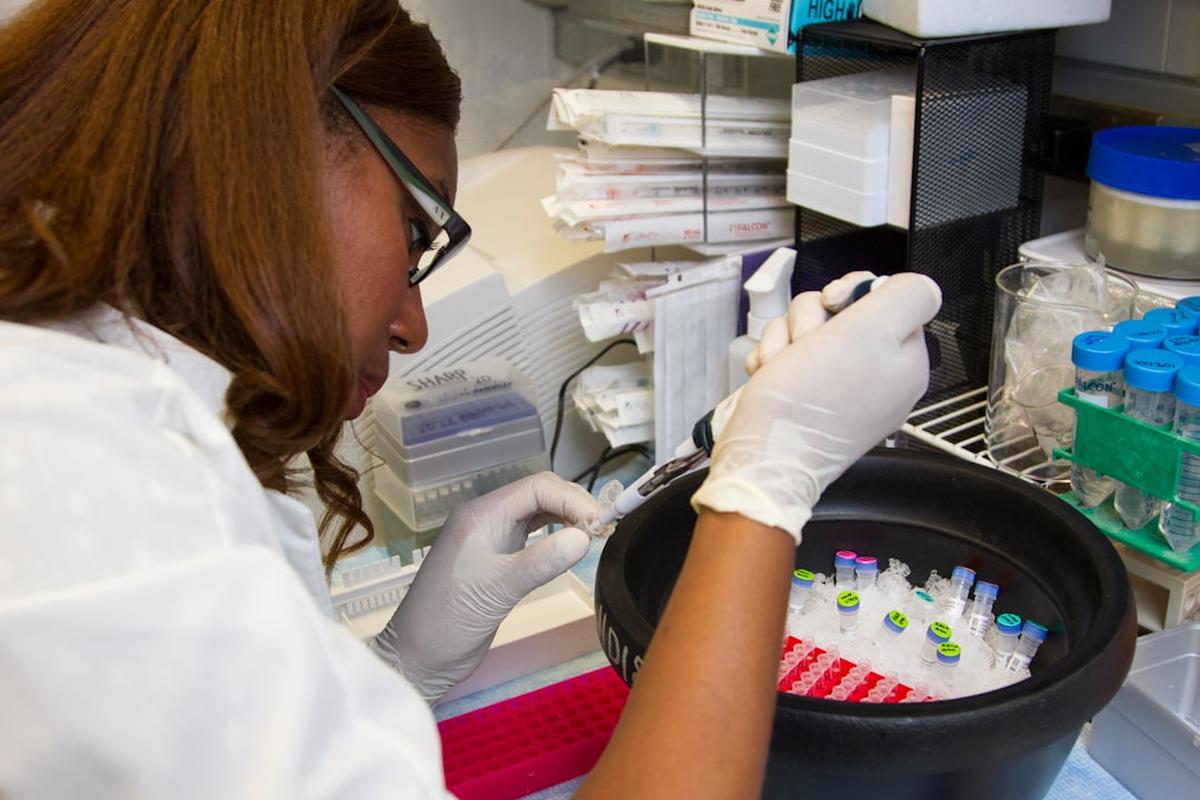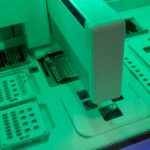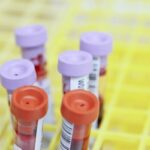In the realm of human identity, few topics are as intriguing and complex as our genetic makeup and its relationship to our ethnicity. The advent of direct-to-consumer DNA testing has opened up a new world of possibilities, allowing us to delve into our ancestral past and unravel the intricate tapestry of our genetic heritage. This article aims to explore the fascinating intersection of DNA and ethnicity, shedding light on the science behind DNA testing, the overlap between DNA and ethnicity, and the ethical considerations involved in this rapidly evolving field.
Understanding DNA and Ethnicity
What is DNA?
DNA, or deoxyribonucleic acid, is the biological blueprint that makes us who we are. It is a molecule that carries our genetic instructions, dictating everything from our eye color to our susceptibility to certain diseases. Each of us inherits a unique combination of DNA from our parents, which in turn was passed down through generations, creating a genetic link to our ancestors.
Defining Ethnicity
Ethnicity, on the other hand, is a social construct that groups people based on shared cultural, historical, linguistic, or national experiences. Unlike DNA, which is a tangible, biological entity, ethnicity is fluid and subjective, shaped by both individual self-identification and societal recognition.
The Relationship Between DNA and Ethnicity
While DNA and ethnicity are distinct concepts, they are closely intertwined. Our DNA can provide clues about our ethnic origins, as certain genetic variations are more common in some ethnic groups than others. However, it’s important to note that our DNA does not define our ethnicity. Our cultural practices, language, traditions, and personal identification play a crucial role in shaping our ethnic identity.
The Science Behind DNA Testing
How DNA Testing Works
DNA testing involves analyzing a person’s DNA to identify specific genetic variations. This is typically done by extracting DNA from a sample of saliva or blood. The DNA is then examined for specific markers or sequences that are known to vary between individuals. These variations can provide insights into a person’s ancestry, health risks, and even traits like taste preferences.
Types of DNA Tests
There are several types of DNA tests, each providing different kinds of information. Autosomal DNA tests examine chromosomes inherited from both parents and can provide a broad overview of a person’s genetic ancestry. Y-DNA tests analyze the Y chromosome, which is passed from father to son, and can trace a person’s paternal lineage. Mitochondrial DNA tests, on the other hand, look at DNA passed down from mother to child and can reveal maternal ancestry.
Limitations of DNA Testing
While DNA testing can provide valuable insights, it is not without limitations. The accuracy of DNA tests depends on the size and diversity of the reference database used for comparison. Moreover, DNA tests can only provide estimates of ethnic ancestry, not definitive answers. It’s also worth noting that our understanding of the human genome is still evolving, and as such, DNA test results should be interpreted with caution.
The Overlap Between DNA and Ethnicity
Genetic Ancestry and Ethnicity
Genetic ancestry refers to the genetic lineage traced through specific markers in our DNA. While it can provide clues about our ethnic origins, it doesn’t necessarily align with our self-identified ethnicity. For instance, a person may identify as African American based on their cultural experiences and self-identification, but their genetic ancestry may reveal a mix of African, European, and Native American origins.
Examples of Overlaps Between DNA and Ethnicity
There are numerous examples of overlaps between DNA and ethnicity. For instance, Ashkenazi Jews, a group with a long history of endogamy (marrying within the group), have distinct genetic markers that can be traced back to a small group of ancestors. Similarly, certain genetic variations are more common among people of Finnish descent, reflecting the country’s historical isolation and small population size.
Case Studies: DNA Testing and Ethnicity
DNA Testing Revealing Unexpected Ethnic Backgrounds
There are countless stories of people discovering unexpected ethnic backgrounds through DNA testing. For instance, a woman who identified as Irish discovered through DNA testing that she had a significant percentage of Ashkenazi Jewish ancestry, prompting her to explore a previously unknown part of her heritage.
DNA Testing Confirming Suspected Ethnic Backgrounds
In other cases, DNA testing can confirm suspected ethnic backgrounds. A man who was adopted at birth used a DNA test to confirm his Native American ancestry, which he had long suspected based on his physical features and family stories.
The Impact of DNA Testing on Individuals’ Understanding of Their Ethnicity
DNA testing can profoundly impact individuals’ understanding of their ethnicity. It can validate personal identities, uncover hidden histories, and even challenge deeply held beliefs about who we are. However, it’s important to remember that our ethnic identities are shaped by more than just our DNA – our experiences, culture, and personal identification play an equally, if not more, significant role.
The Role of Geography and Culture in DNA and Ethnicity
How Geography Influences DNA and Ethnicity
Geography plays a crucial role in shaping both our DNA and our ethnicity. Over generations, populations that lived in the same geographical area tended to intermarry, leading to distinct genetic patterns. These populations also shared common experiences, traditions, and languages, giving rise to specific ethnic groups.
The Impact of Culture on DNA and Ethnicity
Culture also has a profound impact on our DNA and ethnicity. Cultural practices, such as endogamy, can influence the genetic makeup of a population. At the same time, our cultural experiences and traditions shape our ethnic identities, often more so than our genetic ancestry.
The Role of Intermarriage in Shaping DNA and Ethnicity
Intermarriage between different ethnic or racial groups can lead to a blending of genetic material, resulting in a more diverse genetic makeup in subsequent generations. This genetic mixing can sometimes blur the lines between different ethnic groups, reflecting the fluid and complex nature of human ethnicity.
Ethical Considerations in DNA Testing for Ethnicity
Privacy Concerns
DNA testing raises significant privacy concerns. DNA contains highly personal information, and there are legitimate concerns about how this data is stored, used, and potentially shared. It’s crucial for consumers to understand the privacy policies of DNA testing companies before deciding to take a test.
Potential Misuse of DNA Testing
There is also the potential for misuse of DNA testing, particularly in the context of ethnicity. There are concerns that DNA tests could be used to reinforce harmful racial stereotypes or to justify discriminatory practices. It’s essential to remember that while our DNA can tell us about our ancestry, it does not define our worth or capabilities.
The Debate Over the Commercialization of DNA Testing
The commercialization of DNA testing has sparked a heated debate. While some see it as a positive development that empowers individuals to explore their genetic heritage, others worry that it could lead to a commodification of our genetic information. This debate underscores the need for robust regulations and ethical guidelines in this rapidly evolving field.
The Future of DNA Testing and Ethnicity
Advances in DNA Testing Technology
The field of DNA testing is advancing at a rapid pace. New technologies are making it possible to analyze our DNA in greater detail and at a lower cost than ever before. These advances could potentially provide even more insights into our genetic ancestry and its relationship to our ethnicity.
Potential Implications for Understanding Ethnicity
As our understanding of the human genome evolves, so too will our understanding of ethnicity. DNA testing could potentially challenge traditional notions of ethnicity, highlighting the fluidity and complexity of human identity. It could also foster a greater appreciation for our shared genetic heritage, underscoring the fact that we are all interconnected in the grand tapestry of human history.
How DNA Testing Could Shape Our Understanding of Human History
DNA testing has the potential to reshape our understanding of human history. By tracing our genetic ancestry, we can uncover ancient migration patterns, population interactions, and historical events that have shaped our world. This could provide a more nuanced and inclusive understanding of our collective past, enriching our sense of who we are and where we come from.
Recap
The intersection of DNA and ethnicity is a complex and fascinating field, offering intriguing insights into our genetic heritage and our sense of identity. While DNA testing can provide valuable clues about our ethnic origins, it’s important to remember that our ethnicity is shaped by more than just our DNA. Our cultural experiences, personal identification, and societal recognition play a crucial role in shaping our ethnic identities. As we continue to explore this fascinating intersection, it’s crucial to navigate this terrain with curiosity, respect, and a deep appreciation for the complexity of human identity.
Frequently Asked Questions
Can DNA testing determine my ethnicity?
DNA testing can provide estimates of your ethnic ancestry based on the presence of certain genetic markers. However, it’s important to remember that these are estimates, not definitive answers, and they should be interpreted with caution.
How accurate are DNA tests for ethnicity?
The accuracy of DNA tests for ethnicity depends on the size and diversity of the reference database used for comparison. While these tests can provide valuable insights, they are not infallible and should not be taken as the final word on your ethnic identity.
Can DNA testing reveal my cultural heritage?
DNA testing can provide clues about your ancestral origins, but it cannot reveal your cultural heritage. Culture is a complex construct shaped by language, traditions, experiences, and personal identification, which cannot be determined by DNA alone.
What are the ethical considerations in DNA testing for ethnicity?
DNA testing for ethnicity raises several ethical considerations, including privacy concerns, potential misuse of genetic data, and the commercialization of genetic information. It’s crucial for consumers to understand these issues before deciding to take a DNA test.
What is the future of DNA testing and ethnicity?
The field of DNA testing is rapidly evolving, with new technologies offering greater insights into our genetic ancestry. As our understanding of the human genome grows, so too will our understanding of ethnicity, potentially challenging traditional notions and fostering a greater appreciation for our shared genetic heritage.
How does geography and culture influence DNA and ethnicity?
Geography and culture play a crucial role in shaping both our DNA and our ethnicity. Geographic isolation and cultural practices like endogamy can lead to distinct genetic patterns, while shared experiences and traditions give rise to specific ethnic groups.
References:
- Royal, C. D., Novembre, J., Fullerton, S. M., Goldstein, D. B., Long, J. C., Bamshad, M. J., & Clark, A. G. (2010). Inferring genetic ancestry: opportunities, challenges, and implications. American journal of human genetics, 86(5), 661-673.
- Wagner, J. K., Cooper, J. D., Sterling, R., & Royal, C. D. (2012). Tilting at windmills no longer: a data-driven discussion of DTC DNA ancestry tests. Genetics in Medicine, 14(6), 586-593.
- Bolnick, D. A., Fullwiley, D., Duster, T., Cooper, R. S., Fujimura, J. H., Kahn, J., … & TallBear, K. (2007). The science and business of genetic ancestry testing. Science, 318(5849), 399-400.







